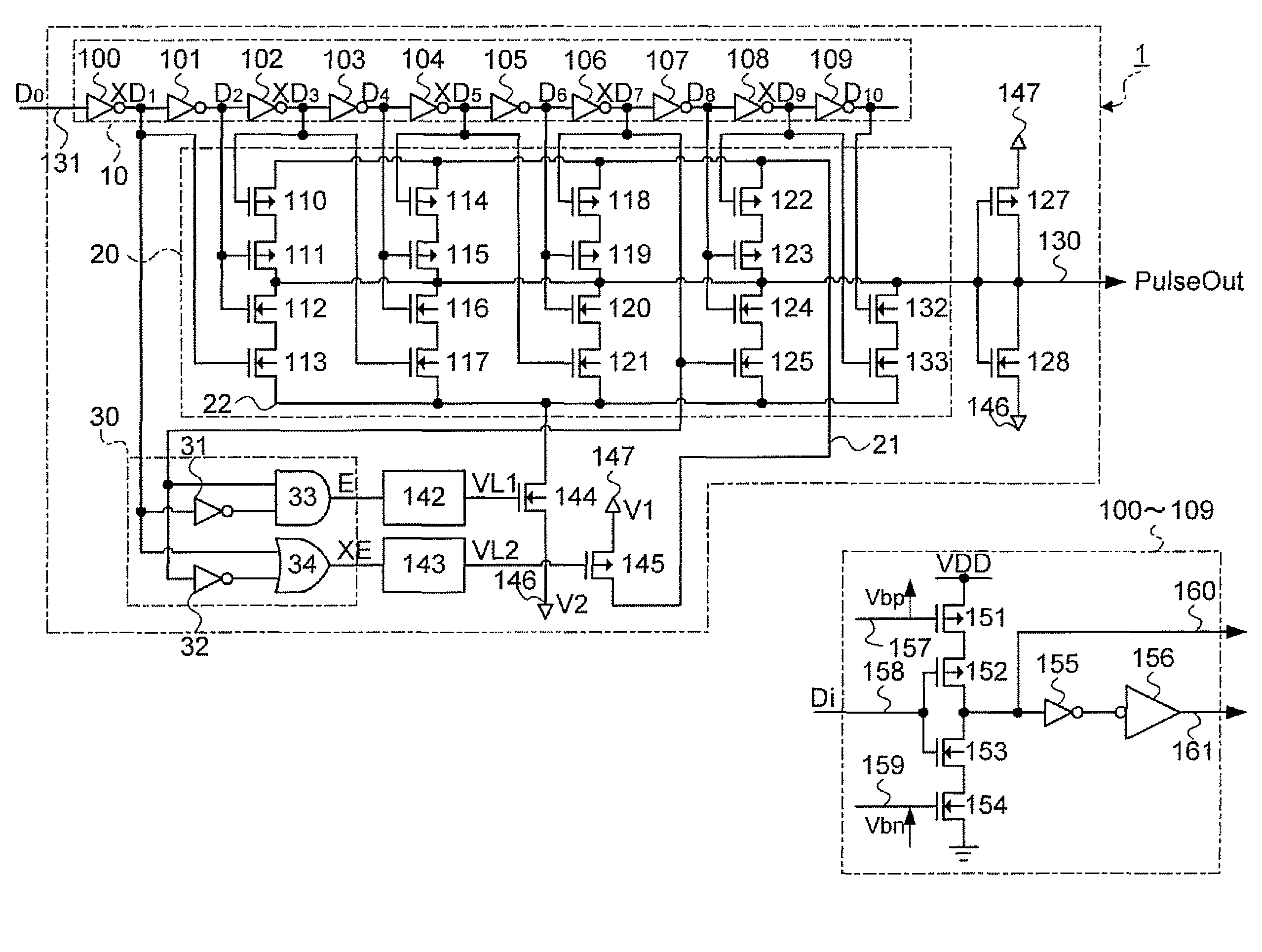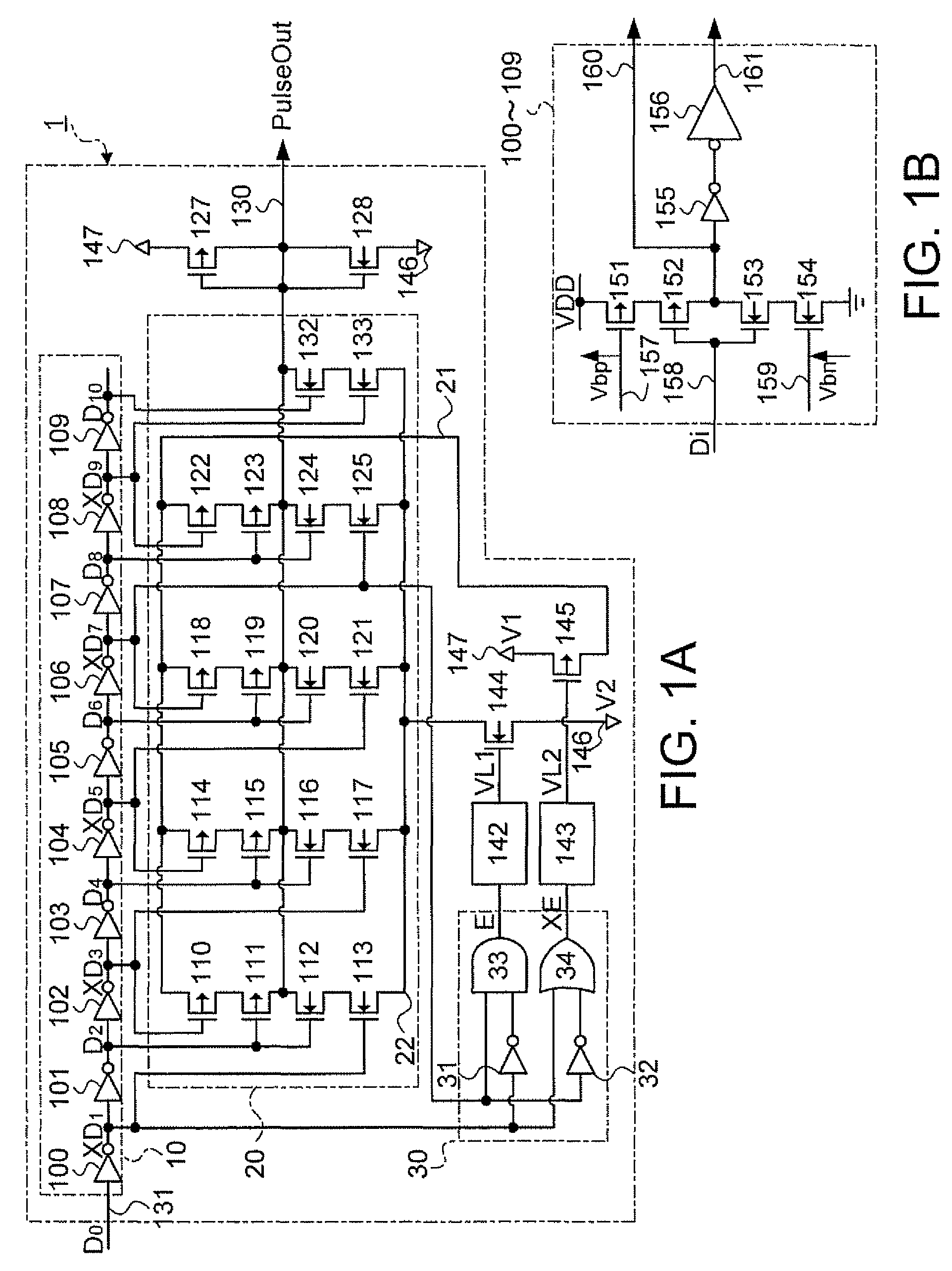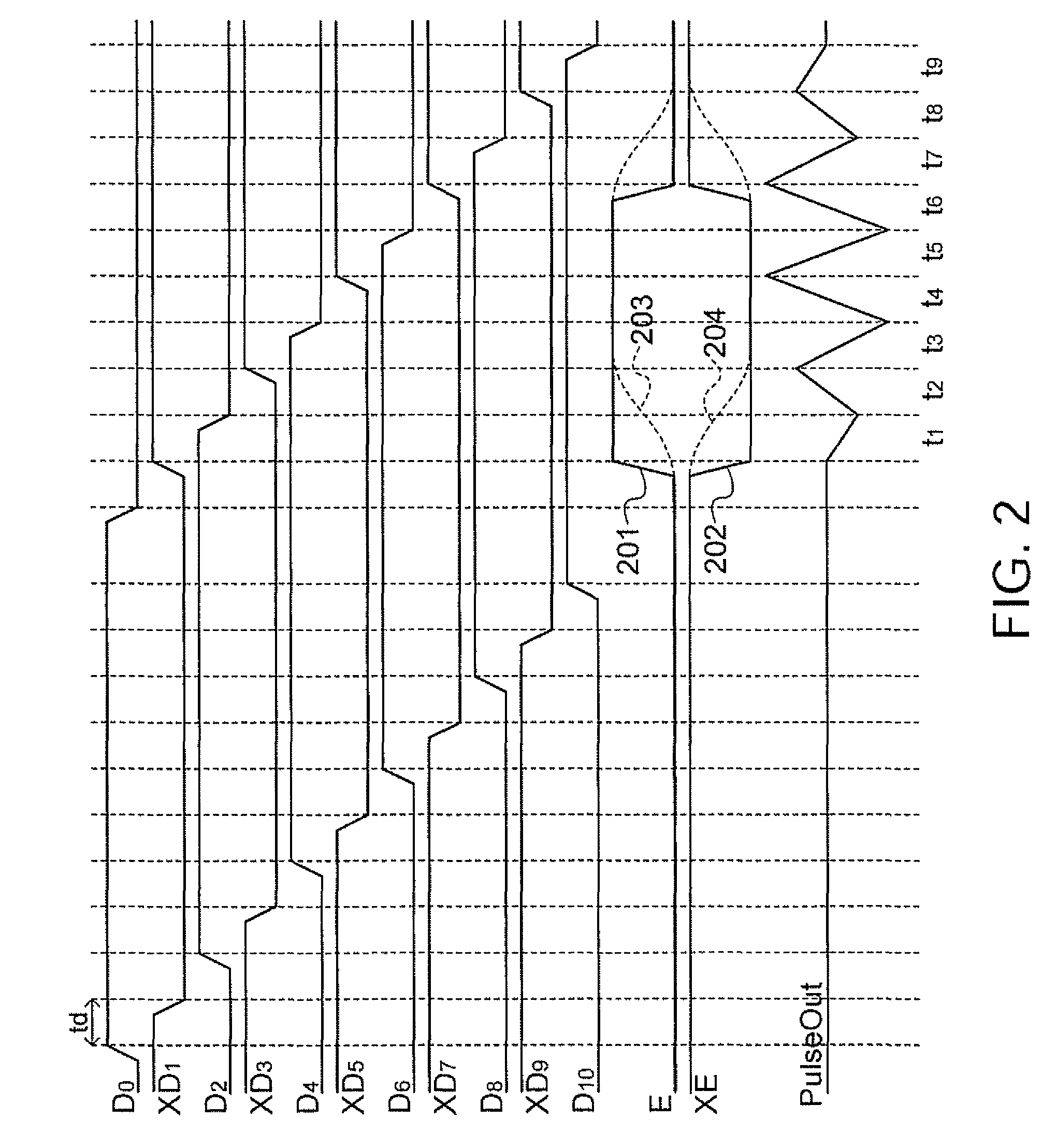Pulse generator circuit and communication apparatus
a generator circuit and circuit technology, applied in the direction of generating/distributing signals, pulse techniques, instruments, etc., can solve the problems of difficult configuration and limited performance of generated fine pulses, and achieve high reliability, high-sensitivity, and low cost
- Summary
- Abstract
- Description
- Claims
- Application Information
AI Technical Summary
Benefits of technology
Problems solved by technology
Method used
Image
Examples
first embodiment
Configuration of Pulses to be Generated
[0042]Pulses to be generated in the present embodiment will first be described with reference to FIGS. 9A-9G to FIG. 15. The pulses to be generated are single-ended output pulses shown in FIGS. 9E and 9F, or a pair of band-limited pulses having phases different from each other by 180 degrees shown in FIG. 9G. The waveform of the band-limited pulses will be described later in more detail with reference to FIGS. 10 to 15. FIG. 9G shows differential output pulse signals, and the potential difference between the outputs is equal to the waveform shown in FIG. 9E. Looking at the output potential difference as the differential signals, one can set the DC level during the no-pulse period indicated by ts shown in FIG. 9G to an arbitrary value as long as it is fixed.
[0043]The present embodiment will be described with reference to, by way of example, generation of the waveform having the following specifications, which are readily achievable by using mini...
second embodiment
[0082]A second embodiment of the pulse generator circuit will be described below with reference to FIGS. 3 and 4.
[0083]FIG. 3 is a circuit diagram showing the configuration of a pulse generator circuit 300 according to the second embodiment. FIG. 4 is a timing chart showing the operation of the pulse generator circuit 300 according to the second embodiment.
[0084]In FIG. 3, each of NOR circuits 303, 304, and 305 is an NOR-logic delay circuit. Let Q1, Q2, and Q3 be the outputs from the NOR circuits 303, 304, and 305. One of the two input terminals of each of the NOR circuits 303, 304, and 305 is connected to the corresponding one of the outputs Q3, Q1, and Q2 from the NOR circuits 305, 303, and 304 so as to form a ring oscillator circuit. Let C1, C2, and C3 be the other input terminals 308, 307, and 306 of the NOR circuits 303, 304, and 305.
[0085]When (Q1+Q2)×(Q3+Q1)×(Q2+Q3) is false, a pulse output terminal Pout 330 of a switching circuit 340 is connected to a power supply of a volta...
third embodiment
[0104]A third embodiment of the pulse generator circuit will be described below.
[0105]FIGS. 5 to 8 explain key portions of a communication apparatus using the pulse generator circuit 1 of the first embodiment or the pulse generator circuit 300 of the second embodiment, and show cases where the pulse generator circuit 1 or the pulse generator circuit 300 is applied to a UWB transmitter and a UWB receiver.
[0106]FIG. 5 is a block diagram schematically showing a UWB-IR transmitter 500. A pulse generator circuit 501 is comprised of the pulse generator circuit 1 (FIG. 1A) or the pulse generator circuit 300 (FIG. 3). An input terminal 503 is a terminal to which a start signal is inputted, and an input terminal 504 is a terminal to which data to be transmitted are inputted. The generated pulses are modulated in accordance with the signal inputted to the input terminal 504, and the modulation method will be described later. The thus generated pulses are transmitted via an antenna 502.
[0107]E...
PUM
 Login to View More
Login to View More Abstract
Description
Claims
Application Information
 Login to View More
Login to View More - R&D
- Intellectual Property
- Life Sciences
- Materials
- Tech Scout
- Unparalleled Data Quality
- Higher Quality Content
- 60% Fewer Hallucinations
Browse by: Latest US Patents, China's latest patents, Technical Efficacy Thesaurus, Application Domain, Technology Topic, Popular Technical Reports.
© 2025 PatSnap. All rights reserved.Legal|Privacy policy|Modern Slavery Act Transparency Statement|Sitemap|About US| Contact US: help@patsnap.com



